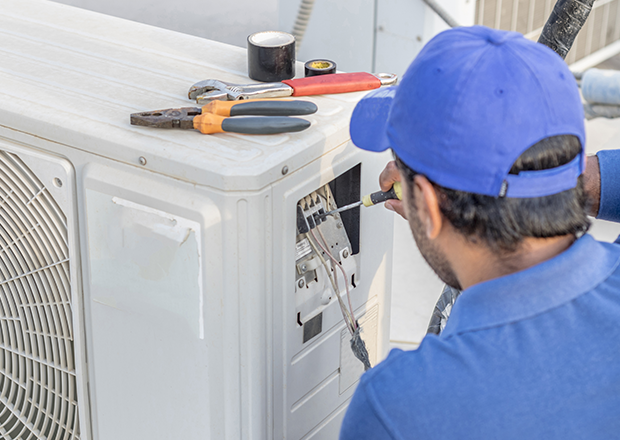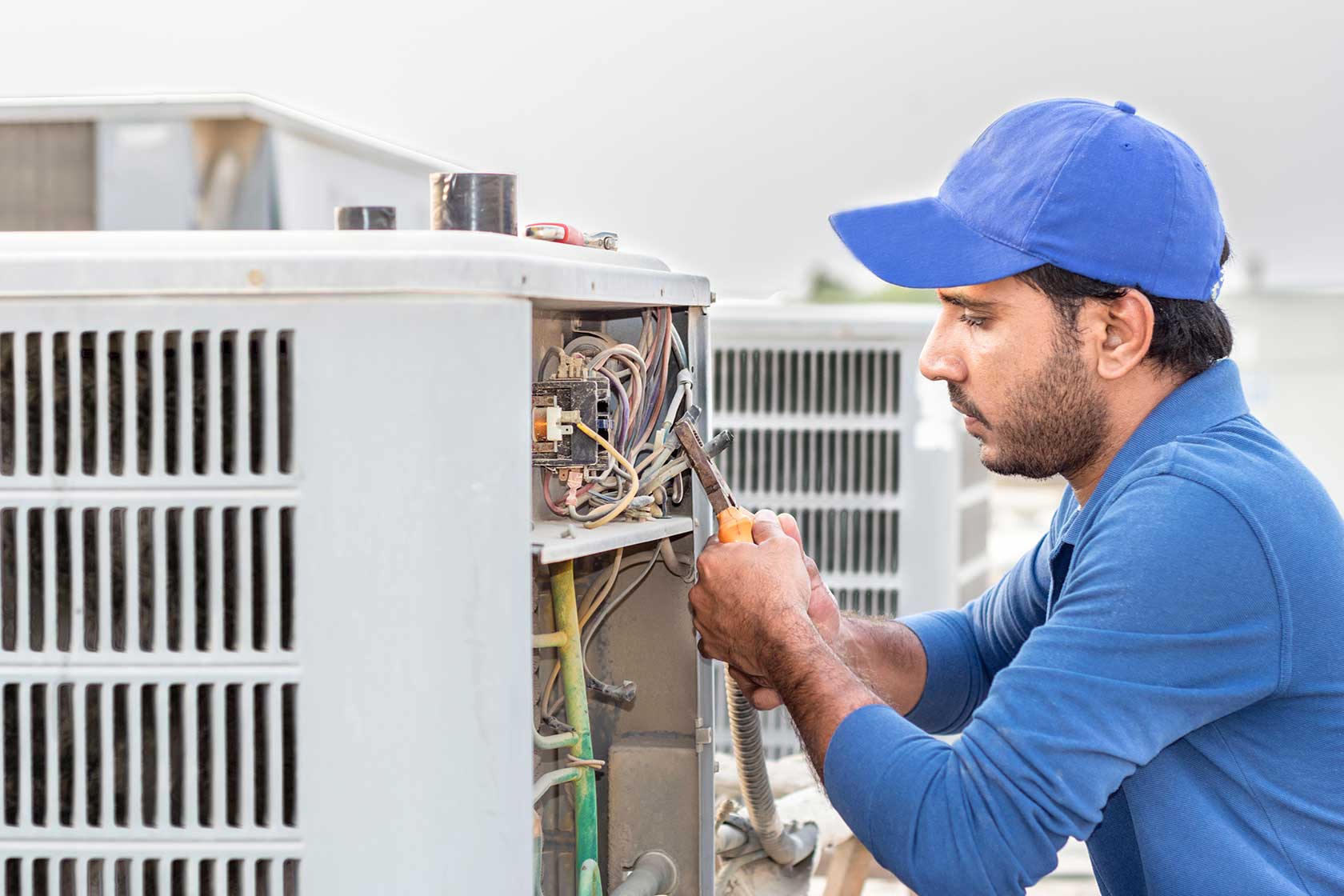Did you understand that about 75% of house owners experience cooling noise problems at some point? When your air conditioning begins making unusual noises, it can be quite turbulent to your tranquility and convenience.
From rattling and humming to screeching and banging, these noises can show underlying issues that require focus. Identifying the source of the noise is important for reliable fixings and guaranteeing your ac unit runs effectively.
So, if you're tired of bearing with aggravating air conditioning noises disrupting your tranquility, there are options at hand.
Secret Takeaways
- Regular upkeep is necessary to address common AC noise sources like ductwork issues and faulty electric motors.
- Address vibrating sounds by evaluating for loosened components, keeping fan electric motors, and adding vibration isolation pads.
- Screeching and banging sounds can be dealt with by inspecting belts, follower blades, and compressor coils for problems.
- Repair work a/c sound troubles by performing aesthetic inspections, executing soundproofing strategies, and troubleshooting for blockages.
Common Air Conditioning Sound Sources
If your cooling system is making uncommon noises, it could be due to one of a number of usual sources.
One frequent perpetrator is problems with the ductwork. In time, air ducts can establish leaks, loose connections, or even blockages. These issues can trigger air to move unevenly, bring about whistling or rattling noises. A complete ductwork assessment by an expert can help identify and correct these issues, restoring your system's smooth operation.
An additional typical source of noise in a/c systems is a defective electric motor. The electric motor is an essential component that drives the fans and other moving components within the system. If the electric motor is worn out or damaged, it can produce grinding, screeching, or clunking sounds. In such situations, motor replacement might be necessary to eliminate the source of the disturbance. Routine upkeep and punctual motor substitute when required can help keep your cooling system running quietly and successfully.
Identifying Rattling and Buzzing Appears
To address rattling and humming sounds in your a/c system, beginning by evaluating the elements that might be triggering these noises, such as loosened parts or worn-out components. Resonance seclusion is type in dealing with these concerns. Check for any type of loosened screws, screws, or panels that may be shaking against each other during procedure. Tightening these can frequently reduce the rattling sounds.
In addition, check the fan electric motor for any type of indications of damage. Normal follower electric motor maintenance, such as lubrication and cleaning, can help in reducing humming sounds brought on by rubbing or breakdown.
If the rattling persists after checking and tightening elements, take into consideration adding resonance isolation pads or places to take in the excess resonances. These pads function as a barrier in between the vibrating parts, decreasing the noise. Keep in mind that dealing with these noises quickly can prevent more damage to your cooling system and guarantee its peak efficiency.
Resolving Squealing and Banging Sounds
When attending to squealing and banging sounds in your cooling system, begin by identifying the resource of the noises via a complete assessment of the unit's parts. Inspect the belt tension in addition to the electric motor bearings, as loosened belts or worn-out bearings can lead to screeching noises. Check the fan blade for any kind of blockages or damages that may cause banging sounds when the follower turns. Furthermore, take a look at the compressor coil for any kind of particles or concerns that might be producing the sounds.
To resolve squealing sounds associated with belt tension, change the stress adhering to the manufacturer's guidelines to see to it it's within the suggested range. If the electric motor bearings are the culprit, consider lubing them ideally; otherwise, they might require to be changed. For banging noises caused by fan blade concerns, repair or replace the damaged blades without delay. When it pertains to the compressor coil, cleansing it completely can usually solve any type of noise-related problems. By attending to these prospective resources of squealing and banging noises, you can recover your air conditioning system to its finest working state.
Tips for Repairing Cooling Noise
When confronted with air conditioning noise concerns, begin by carrying out an aesthetic evaluation of the device's components for any visible indicators of damage or wear. Look for loose components, damaged belts, or particles that may be triggering the sound. If you notice any type of issues, ensure to tighten loosened components, change damaged components, and clean any type of debris to see if the sound boosts.
To resolve a/c sound troubles, consider soundproofing strategies to decrease the audio transmission from the system. Shielding the walls around the unit, installing soundproofing panels, or placing rubber pads below the device can help moisten the sound efficiently.
Normal upkeep is essential to stop cooling noise. Be specific that the system is tidy, lubricated, and properly maintained to reduce possible concerns. Repairing actions like examining the fan blades and electric motor for any kind of blockages can additionally assist detect and take care of noise troubles. For small issues, DIY options such as tightening up screws or readjusting components might resolve the noise without the demand for expert assistance.
Guaranteeing Efficient AC Procedure
Guarantee your air conditioning runs successfully by organizing normal maintenance checks and maintaining the unit tidy and well-lubricated. Guaranteeing your air conditioning system operates at its finest not only lowers sound yet additionally reduces power usage. To attain this, carry out sound reduction methods such as placing resonance pads under the device to wet audio transmission and ensuring all parts are securely tightened. In addition, tidy or replace air filters routinely to prevent air movement clogs that can stress the system and increase noise levels.
Energy consumption optimization is important for efficient air conditioner operation. Set your thermostat to a proper temperature level to stay clear of exhausting the device. Use ceiling followers to help flow great air better, enabling you to raise the thermostat slightly without compromising comfort. Take into consideration setting up a programmable thermostat to change temperature levels immediately when you're away. By adhering to these methods, you can maintain a comfy interior environment while minimizing energy prices and sound degrees.
Frequently Asked Questions

Can Cooling Noise Degrees Influence the Top Quality of Indoor Air?
High air conditioning noise levels can affect interior air high quality by contributing to sound pollution, which can influence your health.
To address this, consider soundproofing solutions to minimize the sound from your air conditioning unit.
Is There a Correlation In Between Air Conditioning Noise and Energy Effectiveness?
When it concerns air conditioning sound and power efficiency, there's undoubtedly a connection.
The loud noises produced by your air conditioning device can suggest inefficiencies that bring about enhanced energy consumption.
By resolving and reducing the noise pollution, you can boost the overall effectiveness of your system. https://belgraviaacinstallation.co.uk
How Can I Lower Air Conditioning Sound Without Compromising the Cooling Efficiency?

To lower cooling sound without endangering cooling efficiency, take into consideration soundproofing options like acoustic insulation.
You can maximize performance by adjusting the system for effectiveness while moistening unwanted sounds.

Try ensuring all elements are properly set up and maintained, and look for loose components that could be triggering excessive noise.
Are There Any Type Of Certain Laws or Guidelines Relating To Appropriate Noise Degrees for A/c Units?
When it pertains to a/c systems, there specify laws and standards in position to assure conformity with acceptable sound degrees. These requirements aid endure a comfy environment without creating disruptions.
Laws pertaining to noise levels for a/c systems differ relying on place, yet generally concentrate on decreasing audio exhausts to a level that doesn't disrupt everyday tasks. It is essential to be mindful of these standards to make sure your unit fulfills the needed standards.
What Are Some Long-Term Maintenance Tips to avoid Air Conditioning Sound Issues in the Future?
To avoid a/c sound issues long-lasting, see to it you stick to normal upkeep. Clean or change filters, look for loosened parts, and keep the device clean.
Think about soundproofing strategies like adding insulation around the system. By remaining on top of maintenance and taking steps to lower sound, you can appreciate a quieter and more reliable air conditioning system in the future.
Conclusion
Since you have identified the usual resources of air conditioning noise and found out just how to diagnose and fix them, you can take pleasure in a quieter and a lot more reliable cooling system.
Remember to routinely look for any type of uncommon sounds and resolve them promptly to stop any type of additional damages.

By caring for your air conditioning unit, you can assure it runs efficiently and properly for many years to find.
